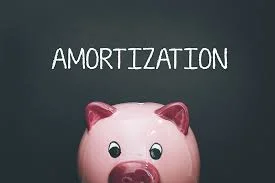How to Calculate Your Mortgage Interest Payments:
Mortgage Interest Calculator calculating your payments is essential for understanding the cost of borrowing and managing your finances effectively. Whether you’re planning to buy a home or are already making monthly mortgage payments, knowing how much of your payment goes toward interest versus principal can give you a clearer picture of your long-term financial obligations. In this article, we’ll break down the steps to calculate your mortgage interest and show you how to use a mortgage interest calculator to simplify the process.
What is Mortgage Interest?
Principal and Interest Explained
When you take out a mortgage loan, you are borrowing money from a lender to buy a home. The total amount you borrow is known as the principal. Interest is the cost you pay for borrowing that money, expressed as a percentage of the principal. Over time, your payments will consist of both principal and interest, with the interest portion gradually decreasing as the loan balance is paid down.
Fixed-Rate vs. Adjustable-Rate Mortgages

There are two main types of mortgage interest structures: fixed-rate and adjustable-rate. In a fixed-rate mortgage, the interest rate remains the same throughout the life of the loan. In an adjustable-rate mortgage (ARM), the interest rate can fluctuate based on market conditions after an initial fixed period.
Why Understanding Mortgage Interest Payments is Important
Impact on Monthly Payments
The portion of your monthly payment that goes toward interest significantly affects how much you pay each month. In the early years of your mortgage, a larger portion of your payment will go toward interest. Understanding this breakdown can help you budget better.
Long-term Interest Costs
The total interest you pay over the life of the loan can add up to a substantial amount. By understanding your mortgage interest, you can explore options to reduce these long-term costs, such as refinancing or making extra payments toward the principal.
How to Calculate Your Mortgage Interest Payments
Basic Formula for Calculating Mortgage Interest
To calculate mortgage interest for a particular month, you can use a simple formula:
- Monthly Interest Payment = (Loan Balance × Annual Interest Rate) ÷ 12
This formula gives you the interest portion of your monthly payment. As your loan balance decreases over time, the amount of interest you pay each month will also decrease.
Example Calculation
Let’s say you have a mortgage with a loan balance of $250,000 and an annual interest rate of 4%. Using the formula:
- Monthly Interest Payment = ($250,000 × 4%) ÷ 12 = $833.33
In the first month, $833.33 of your payment will go toward interest, and the remainder will go toward the principal.
Using a Mortgage Interest Calculator
Benefits of Using a Calculator
Manually calculating mortgage interest can be time-consuming, especially as the loan balance changes over time. A mortgage interest calculator simplifies this process by automatically calculating your monthly interest based on the loan details you input.
Steps to Use a Mortgage Interest Calculator
- Enter the loan amount (principal).
- Input the annual interest rate.
- Specify the loan term (e.g., 15, 20, or 30 years).
- View the breakdown of monthly payments, including interest and principal portions.
A mortgage interest calculator gives you a clear overview of how much you’ll pay in interest each month and over the life of the loan, helping you plan your finances accordingly.
Key Factors That Influence Mortgage Interest
Loan Amount and Interest Rate
The loan amount and interest rate are the two most significant factors that determine how much interest you will pay. Higher loan amounts and higher interest rates result in more interest paid over time.
Loan Term Length
The length of your loan term also impacts your interest payments. A longer loan term, such as 30 years, means lower monthly payments but more interest paid over time. Shorter terms, like 15 years, have higher monthly payments but significantly lower total interest costs.
Credit Score Impact
Your credit score plays a crucial role in the interest rate you qualify for. Borrowers with higher credit scores typically qualify for lower interest rates, which can reduce your monthly payments and long-term interest costs.
Strategies to Reduce Your Mortgage Interest
Refinancing Your Loan
If interest rates have dropped since you took out your mortgage, refinancing can help you lock in a lower rate and reduce your interest payments. Use a mortgage interest calculator to compare your current loan with potential new loan terms.
Making Extra Payments
Making extra payments toward your principal can reduce the loan balance faster, which in turn reduces the amount of interest you pay over the life of the loan.
Switching to a Shorter Loan Term
Switching from a 30-year loan to a 15-year loan can save you a substantial amount of interest. While your monthly payments will be higher, the overall interest paid will be much lower due to the shorter loan term.
Fixed vs. Adjustable-Rate Mortgages: Which is Better for You?
Pros and Cons of Fixed-Rate Mortgages
Fixed-rate mortgages offer predictability because the interest rate remains the same throughout the life of the loan. This makes budgeting easier, but fixed-rate loans often start with higher interest rates than adjustable-rate mortgages (ARMs).
Pros and Cons of Adjustable-Rate Mortgages
ARMs typically offer lower initial interest rates, which can result in lower monthly payments during the initial fixed period. However, after the fixed-rate period ends, the interest rate can fluctuate, leading to potential increases in payments.
Conclusion
Calculating your mortgage interest payments is a critical step in managing your home loan and understanding the true cost of homeownership. Whether you choose to calculate your payments manually or use a mortgage interest calculator, having a clear understanding of how much interest you are paying can help you make informed financial decisions. With the right strategies, such as refinancing or making extra payments, you can reduce your interest costs and pay off your mortgage sooner.
FAQs
1. How can I calculate my mortgage interest manually?
You can calculate your mortgage interest by multiplying the loan balance by the annual interest rate and then dividing by 12 to get the monthly interest payment.
2. Why should I use a mortgage interest calculator?
A mortgage interest calculator simplifies the process and provides an accurate breakdown of your monthly payments, showing how much goes toward interest versus principal.
3. Can I reduce my mortgage interest?
Yes, refinancing to a lower interest rate, making extra payments, or shortening your loan term can reduce the total amount of interest you pay over time.
4. What’s the difference between fixed and adjustable-rate mortgages?
A fixed-rate mortgage has a consistent interest rate throughout the loan term, while an adjustable-rate mortgage (ARM) has an interest rate that can change after the initial fixed period.
5. How does my credit score affect my mortgage interest rate?
Borrowers with higher credit scores typically qualify for lower interest rates, which can reduce your monthly payments and total interest paid over the life of the loan.



